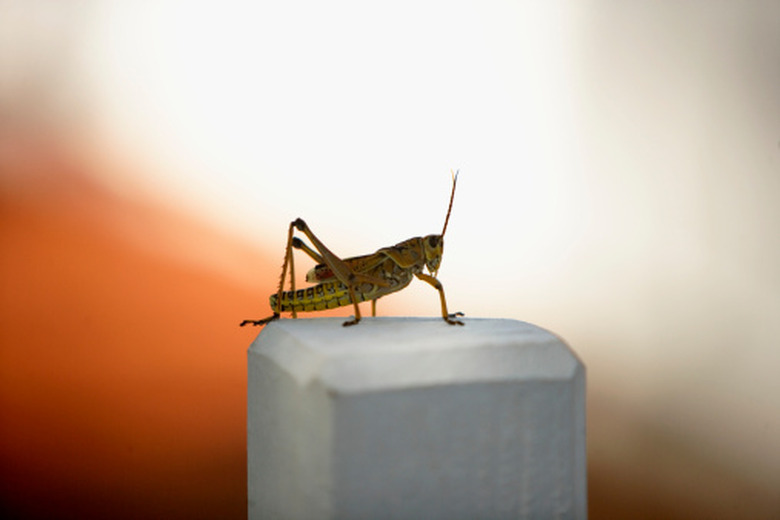How To Kill A Cricket Infestation
Things Needed
- Caulk and caulk gun
- Sodium vapor yellow lights
- Rake
- Burn pile
- Insecticide (liquid/crystal)
- Garden sprayer
Cricket infestations can occur inside your home, but they are rare. You know if you have a cricket infestation if the chirping noise you hear is so loud it prevents you from sleeping. Crickets feed on fabrics, paper and leftover food. They also eat wallpaper glue and fur. An infestation of crickets can be a serious problem. Like all insects, they can be destructive to a home environment. They congregate near light in the evening, which can make your home less attractive.
Step 1
Sanitize your home. Clean up any spilled food. Pull out all kitchen appliances and clean behind and underneath. Grease attracts crickets, so thoroughly clean the inside and outside of your stove and oven.
Step 2
Remove any rotten garbage from in and around your home. Do not store garbage receptacles close to your home. Garbage attracts a variety of insects, not just crickets. Move your compost bin as far away from your home as possible.
Step 3
Move all potential hiding areas from near your home. This includes brick piles and wood piles. Caulk any cracks and crevices in window panes, foundation and siding to prevent crickets from getting in your home.
Step 4
Replace mercury vapor lights with sodium vapor yellow lights. Crickets are less attracted to yellow light.
Step 5
Rake up grass after mowing and burn it; do not throw it out back in a mulch pile. Crickets are attracted to food, and left-over grass is a food source.
Step 6
Spray your home inside and outside with an insecticide. Cover the interior and exterior of your home's foundation with insecticide. Inside your home, carefully spray all baseboards, closets, stairways, fireplaces and crawl spaces with an insecticide that is safe for in-home use. Be sure to spray underneath stairs as well.
Step 7
Sprinkle insecticide crystals around your house's foundation to create a barrier the cricket will not cross. By creating a barrier you keep crickets out, but you also have a chance of eliminating the crickets that have infiltrated your home already.
Tip
Crickets are nocturnal. Spray just before they become active at night.
Warning
Using an insecticide that is not safe for in-home use can cause severe breathing problems.
